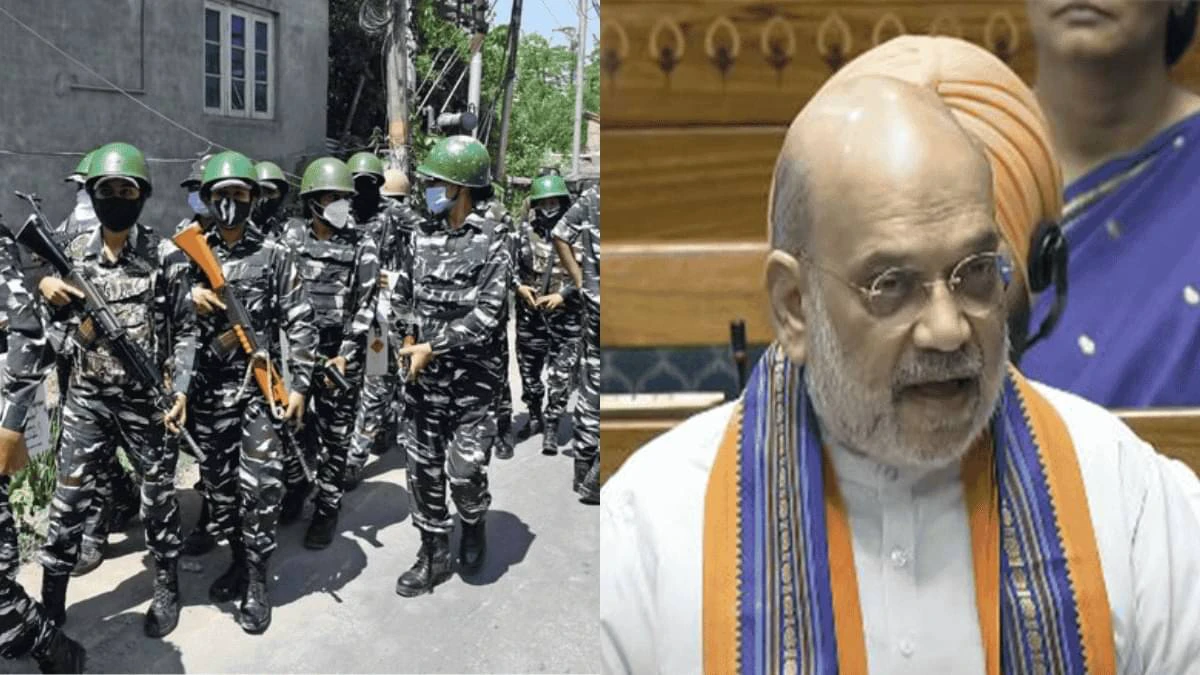New Delhi: As the Jammu and Kashmir Statehood Bill was tabled in the Lok Sabha by Amit Shah, the Ministry of Home Affairs (MHA) ordered a fresh deployment of paramilitary forces across the Union Territory, sources said on Tuesday.
According to officials, the Army will be gradually withdrawn from residential areas of Jammu and Kashmir, making way for the Central Reserve Police Force (CRPF) to take over internal security responsibilities. The CRPF will replace the Rashtriya Rifles in civilian zones, while the Army’s counter-insurgency force will now be restricted to border areas to focus on cross-border threats.
To facilitate the transition, four additional battalions of the CRPF have been rushed to Jammu and Kashmir.
MHA sources said the move is aimed at “streamlining security operations while ensuring the presence of trained paramilitary forces in civilian areas.”
The decision comes as Home Minister Amit Shah presented the Jammu and Kashmir Statehood Bill in the Lok Sabha, a development closely watched for its political and security implications.
Amit Shah Introduces Jammu and Kashmir Reorganisation Amendment Bill in Lok Sabha
Union Home Minister Amit Shah on Wednesday introduced the Jammu and Kashmir Reorganisation (Amendment) Bill, 2025 in the Lok Sabha. The bill seeks to amend Section 54 of the Jammu and Kashmir Reorganisation Act, 2019, to provide a legal framework for removing a Chief Minister or Minister in cases where they are arrested or detained on serious criminal charges.
Alongside this, the government also introduced The Constitution (One Hundred and Thirtieth Amendment) Bill, 2025 and The Government of Union Territories (Amendment) Bill, 2025. All three pieces of legislation have been referred to the Joint Committee of Parliament for detailed scrutiny.
Defending the move, Shah argued that the amendment was necessary to ensure accountability. “Now the people of the country must decide whether it is appropriate for a minister, chief minister, or prime minister to run the government from jail,” he said, adding that Prime Minister Narendra Modi had placed himself under the ambit of the new law, unlike the opposition which he accused of seeking to “cling to power” even from prison.
The Home Minister also recalled that when he himself was arrested in a “politically motivated” case years ago, he had resigned from his post before the arrest and only returned to public office after being acquitted. He accused the opposition of resorting to “crude behaviour” in Parliament to shield corrupt individuals.
Opposition Protests, Raises Concerns Over Constitutional Principles
The introduction of the bills triggered an uproar in the Lok Sabha, with opposition parties staging loud protests and raising slogans, forcing Speaker Om Birla to adjourn proceedings early.
AIMIM chief Asaduddin Owaisi strongly opposed the measures, claiming they violated the separation of powers and undermined the democratic right of citizens to elect their government. “This government is hell-bent on creating a police state. This will be the final nail in the coffin of elected governments,” Owaisi said, warning that the amendments would hand excessive power to executive agencies.
Congress MP Manish Tewari also criticised the proposal, calling it destructive to the basic structure of the Constitution. Opposition leaders insisted the government was misusing constitutional amendments to weaken democratic institutions and centralise power.
Meanwhile, the ruling NDA maintained that the proposed changes would strengthen governance and uphold moral responsibility in public life.
